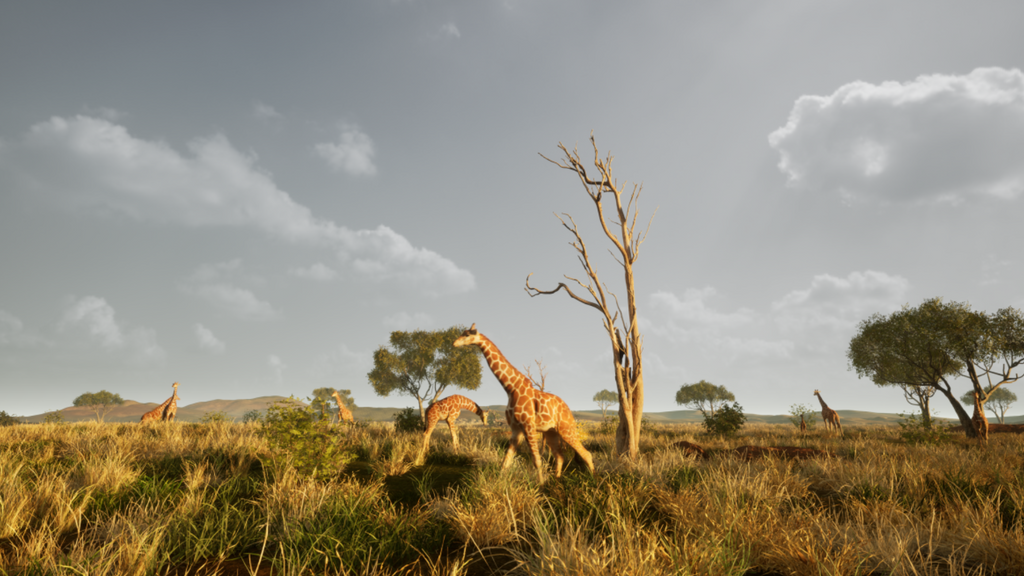Imagine a space where you can engage with wildlife, up close. Really up close.
“A tiger walked past me just 50 centimetres away,” Lien Monteny, a representative at Global Action in the Interest of Animals (GAIA) explained excitedly. “And an elephant almost walked over me.”
What might sound like a fantasy can soon be experienced yourself as Belgian organisation GAIA on Wednesday, launched its summer 2023 campaign: a virtual zoo. The futuristic concept was inaugurated alongside Prince Laurent and the Brussels Minister for Animal Welfare, Bernard Clerfayt.
From 19 July to 11 August, GAIA’s virtual zoo will tour Belgium, giving visitors an “unparalleled virtual reality experience” of wild animals such as elephants, tigers and penguins in their natural habitats.
“You don't have to go far away,” Monteny added, “We're bringing it to the people and it's very accessible.” The whole experience works simply with the use of 3D glasses.
Clerfayt is supportive of GAIA’s campaign. “It's legitimate to rethink the way we hold wild animals in zoos, to show them to people,” he told Belga.
Traditional zoos: capitalising on captivity
As Belgium’s “most influential animal rights organisation” (in their own words), GAIA’s summer 2023 campaign offers an alternative to traditional zoos. “We prefer a tiger in virtual reality to a tiger in captivity," Michel Vandenbosch, president of GAIA, explains on their website.
GAIA is one of many organisations worldwide that have been campaigning against the treatment of the millions of animals kept in more than 10,000 zoos across the world (there are an estimated 2,000 zoos in Europe alone). Captive animals are often restricted to spaces that differ greatly from their natural habitats, designed more for human entertainment than their wellbeing.

Penguins in GAIA's virtual zoo. Credit: GAIA
A paper published in the American National Library of Medicine reports that, “While the physical needs of animals are met in captivity, the conditions of confinement and exposure to humans can result in physiological stress.”
GAIA points out that many animals in captivity suffer from mental and physical ailments such as abnormal repetitive behaviour and even extreme cases of self-mutilation. GAIA contests the claim made by some zoos that they are of pedagogical significance, pointing out that one can’t learn from animals that display abnormal behaviours.
“There’s nothing to learn from animals that are captured,” says Monteny. “Their behaviour is so far from their behaviour in nature.”
Not to mention the (not so) rare occurrences of wild animals escaping the zoo, like the lioness reported to be on the loose in Berlin Thursday morning.
And yet traditional zoos continue to be lucrative, playing an important role in local economies. The World Association of Zoos and Aquariums calculates that zoos and aquariums employ around 700,000 people globally.
The Zoo of the future
GAIA claims to be offering an animal encounter experience that is not just more humane, but also more realistic. “What we see today in a zoo is actually not the animals as they would be in the wild,” says Monteny.
But GAIA isn’t campaigning to get rid of all zoos, which in their opinion is an unrealistic expectation. Instead, the organisation hopes that their summer 2023 campaign will inspire a vision for a new kind of zoo: a hybrid space that is both a sanctuary for injured animals and an educational opportunity for visitors with the help of technological tools like virtual reality.
The organisation is hopeful that technology can continue to help animals, in addition to improving the visitor’s experiences. Think of holographic animals, and maybe even robotic animals. Perhaps in the future, virtual reality will include sensations like smells and temperature.
“There is really a lot of potential,” concludes Monteny.

